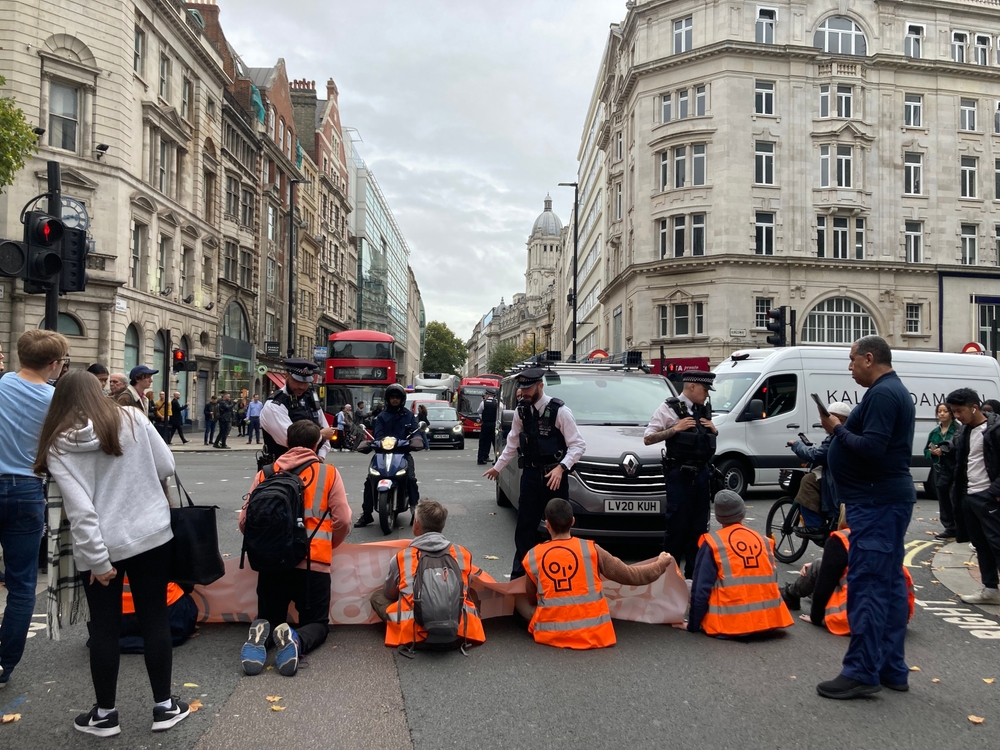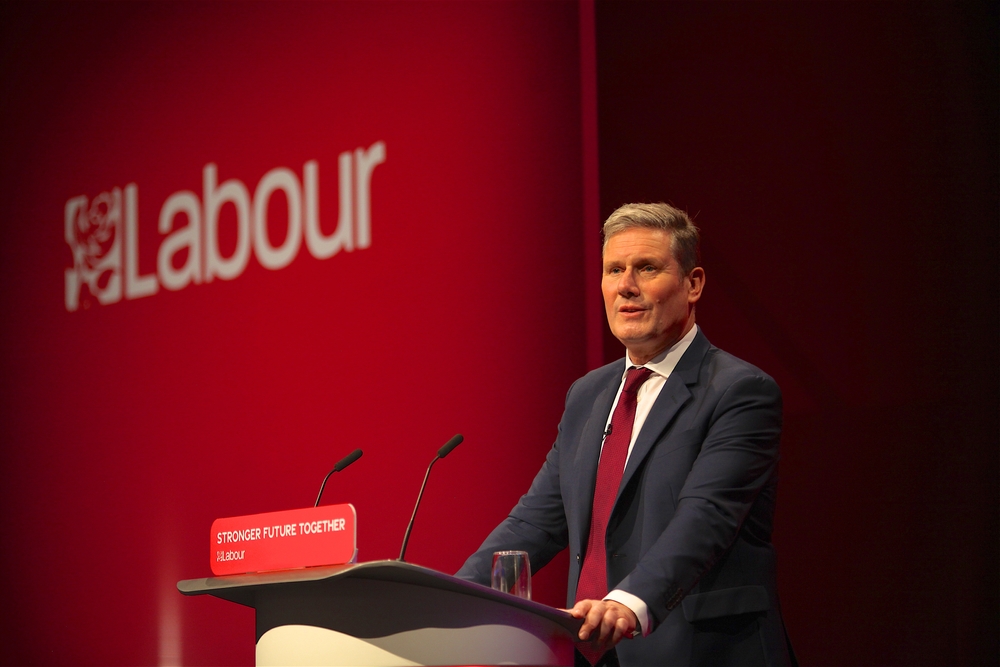The Professional Class:
The climate crisis, which is in reality a complex convergence of ecological calamities, is the political issue of our time. All other issues are subordinate to it, assuming the survival of the human species is considered to be a priority. In which case, formulating a solution is an existential project – something that goes far beyond the confines of typical political discourse.
Nevertheless, despite the extraordinary predicament we’ve found ourselves in, such a solution remains elusive. This is not simply due to the inaction of the political and economic status quo (which is, after all, the cause of the crisis), it’s also a direct product of the climate, green or environmental movements themselves which, even now, refuse to grasp the true nature of their own causes.
This is overwhelmingly due to their composition, a fact that’s explored in some detail in Matthew T. Huber’s ‘Climate Change as Class War: Building Socialism on a Warming Planet’. Early in this work, Huber explores the role of the ‘professional class’ in the western climate movement. Effectively made up of white-collar knowledge workers, one finds government employees, journalists, NGO staff, ‘professional’ activists, academics and scientists within its ranks. In a US context, it’s estimated that they make up around 22% of the population.
According to Huber, their relative prosperity, and increased levels of consumption, produces a kind of ‘climate guilt’. This, when coupled with the meritocratic thinking that has defined the course of their lives, reproduces capitalist dogma – causing them to ignore the realities of existing power structures, and to therefore produce strategies and tactics that, when it comes to the climate crisis, simply won’t work.
Failed Strategies
But what are these strategies? Chances are, you’re already familiar them. One is knowledge-based, usually presented in the form of belief versus denial i.e. does a person accept the realities of climate change or not? The main strategy here, then, is to use scientific knowledge to convince people to accept that the problem exists, with the hope that this acceptance will entail…Well, it’s not entirely clear, presumably forms of climate action, but also the next strategy – non-confrontational, technical policy changes.
The professional class, due to its proximity to power structures, maintains a faith in existing institutions and conventional forms of politics. The climate crisis is often presented as a form of market failure, which can simply be corrected with financial penalties, new forms of taxation, and subsidies for ‘greener’ initiatives. The key here is that confrontation should be avoided, dialogue should be maintained at all costs. If slightly more confrontational methods are utilised, it’s to attract the attention of decision-makers, not to overcome or replace them. A superficial understanding of the crisis often presents western consumers as the primary climate offenders, allowing the real perpetrators off of the hook even if they are acknowledged.
What’s notable about these strategies is that they’re far from new, and have been employed without results for decades. Whilst explicit climate denial is now increasingly rare (especially amongst conventional politicians), the establishment has simply diffused this ‘climate gain’ by doubling down on the notion that, no matter how serious the crisis may seem, it simply doesn’t warrant significant political and / or economic changes. That is to say, ‘yes, it’s happening, but we can solve it without doing very much at all’. As for policy changes, what needs to be said here other than that we’re now getting ready for COP 29 (29!).
The existing climate movement, whilst far from monolithic, is arguably now defined (at least in the minds of large swathes of the public) by feelings engendered by an XR action conducted in 2019. Activists targeted public transport in London, with some standing atop of trains preventing them from departing. The result was footage of tired, irate workers physically removing the activists, expressing their rage that they were going to be made late for work. Over the following weeks and months, press coverage increasingly presented climate activists as detached from the lives of ‘normal’ people, a trend that has remained firmly in place ever since. Whilst such coverage is driven by the billionaire owners of the press, it’d be foolish to deny that this form of activism played directly into their oil-smeared hands.
Some humble suggestions
It’d be hubristic for any individual to present a definitive ‘solution’ to the climate crisis. Capitalism’s growth imperative is pushing the planet’s boundaries to their absolute limit. If we’re to survive, it must be overcome. The question of course is ‘how?’. Here are a few, humble suggestions in the context of the climate movement…
- Climate activists need to participate in what Jane McAlevey calls ‘power-structure analysis’. This consists of determining “precisely who needs to be defeated, overcome, or persuaded to achieve success”. This is the difference between a truly left-wing analysis and an ineffective liberal one.
- Actions, no matter how small or ambitious, need to take working people (that is to say, people who must sell their labour to survive) with them. Targeting the tyres of SUVs of wealthy urbanites isn’t going to achieve revolution (although it is an act of self-defence), but it at least moves in the direction of identifying sources of power and privilege. Even better targets would be explicitly linked to climate and ecological harm, such as fossil fuel executives. Educational work is needed here, ‘how is poor air-quality, driven by the wealthy, literally killing the rest of us?’ Activists need to contextualise their actions very clearly.
- A broader political outlook, that correctly identifies green politics as conducive to human happiness, has to be presented. The establishment has been allowed to present such a politics as hitting the poorest the hardest; a question of having to give things up. It’s true, we all need to adopt more sustainable lifestyles, but why aren’t we talking about the ‘social luxuries’ in a post-capitalist era? More free time, better healthcare, breathable air, bloodstreams free of microplastics, urban centres that prioritise human sociability over SUVs? Without this positive vision of the future, the climate movement is simply perceived as offering further austerity in an era already marked by extreme austerity.
The professional class isn’t a bogeyman. It can, and has, contributed to a myriad of climate struggles. However, it represents a relatively small fraction of society. To overcome the threat of extinction, it’s necessary to animate the largest segment of the population – working people, people who don’t possess capital, people who lack access to the natural systems upon which they depend except indirectly through wage-slavery. People who, ultimately, are forced to pour fuel upon the flames set alight by millionaires and billionaires.
If we’re to win, to survive, these people have to not only be won over by the climate movement, but must also become its largest constituent. This will be a challenge, but the first step is simple – let’s stop aggravating them via a childish conception of power and politics. Let’s stop making them late for work and, instead, provide them with the answers to their very real and pressing problems.





